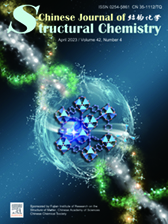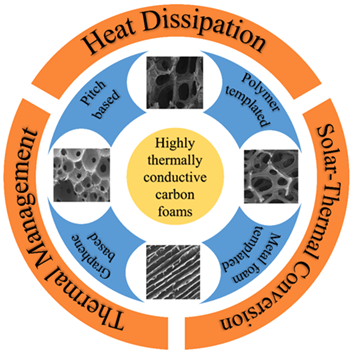
Cover Picture
Utilization of porous liquids for catalytic conversion
Yewei Ren, Guosheng Zhou, Ziyang Lu*
Submit a Manuscript
Utilization of porous liquids for catalytic conversion
Yewei Ren, Guosheng Zhou, Ziyang Lu*
Submit a Manuscript
Porous carbon-based thermally conductive materials: fabrication, functions and applications
Deyu Wang, Xuan Wu, Gary Owens, Haolan Xu*
Chin. J. Struct. Chem., 2023, 42: 100006. DOI: 10.1016/j.cjsc.2022.100006
April 15, 2023
Porous carbon-based materials; Graphene networks; Carbon foams; Thermal conductivity; Solar steam generation
ABSTRACT
The demand for electronic devices has dramatically increased in the past few years. Efficient electronic devices require excellent thermal management systems to extend their operation time and prevent heat accumulation from affecting performance. Carbonaceous materials are considered as one of the ideal thermal management materials due to their excellent physiochemical stability. In addition, since porous-structured carbon materials typically exhibit outstanding thermal conductivity, low density, and large contact area, they have attracted considerable attention from both academia and industry in the last decades. In this review, methods and strategies for the preparation of highly thermally conductive porous carbon-based materials and the factors that influence their thermal conductivity of the materials are summarized. The thermal performance of porous carbonaceous materials fabricated by different approaches and their applications are also discussed. Finally, the potential challenges and strategies for the development and applications of highly thermally conductive porous carbonaceous materials are discussed.







